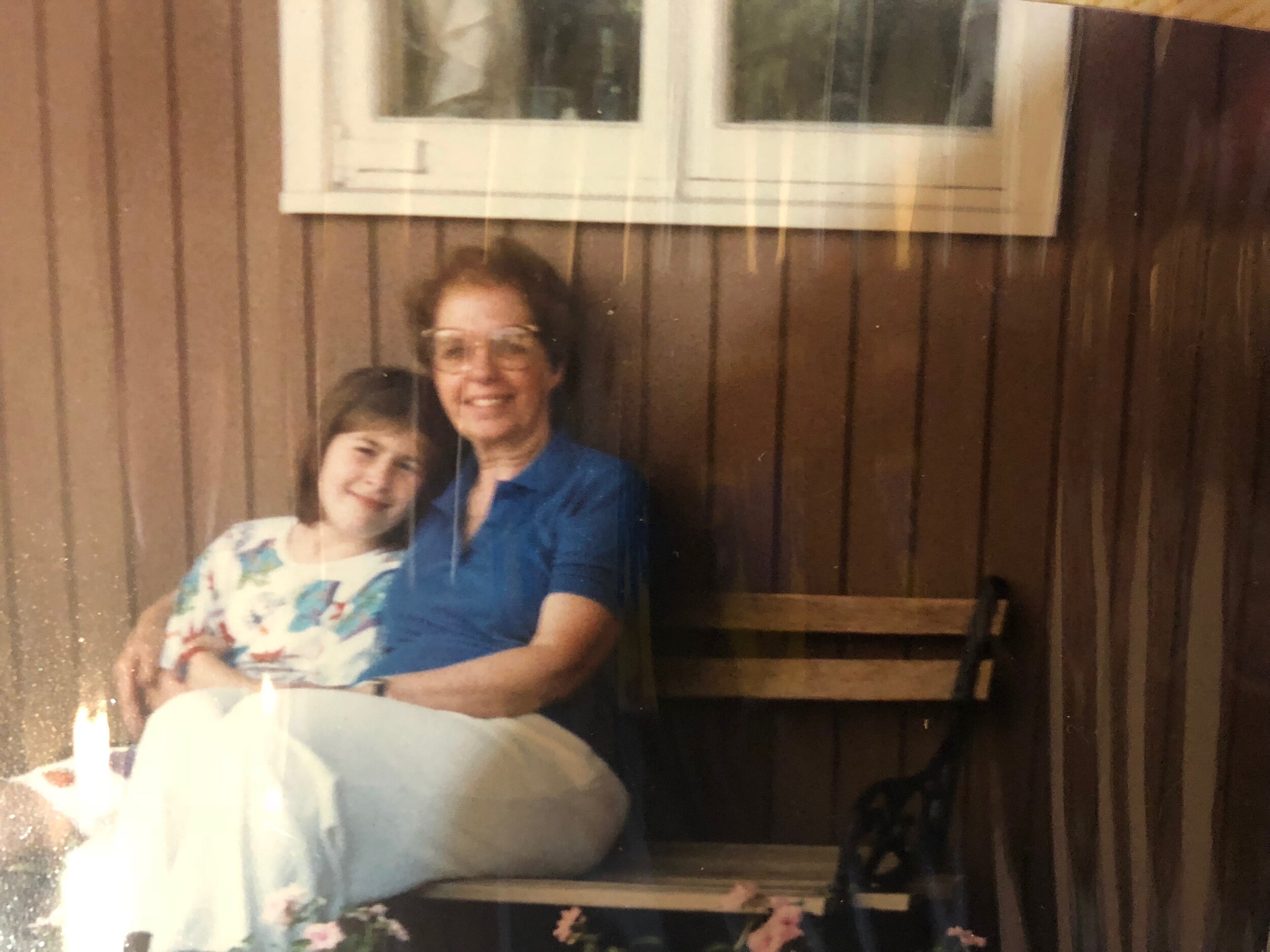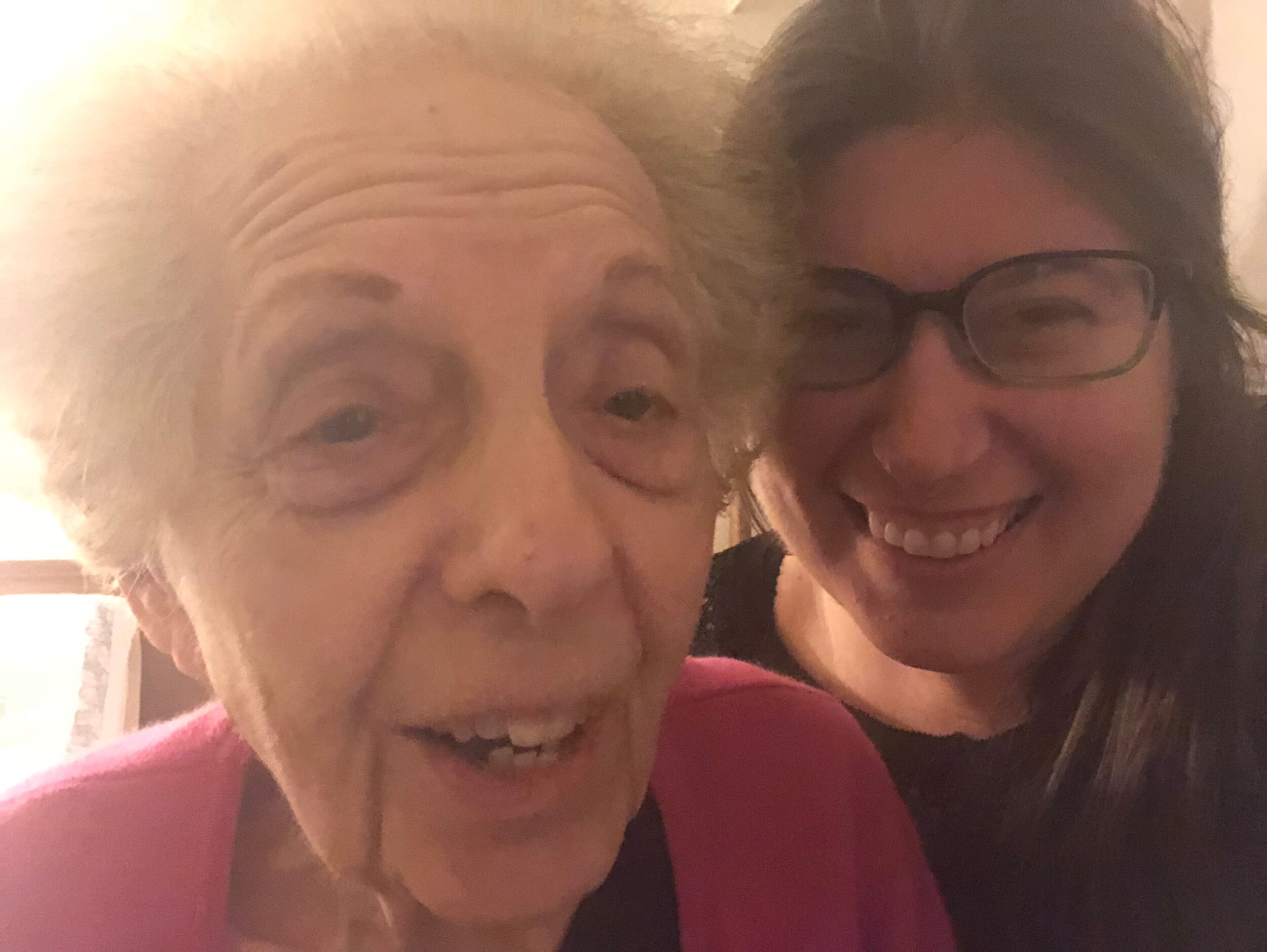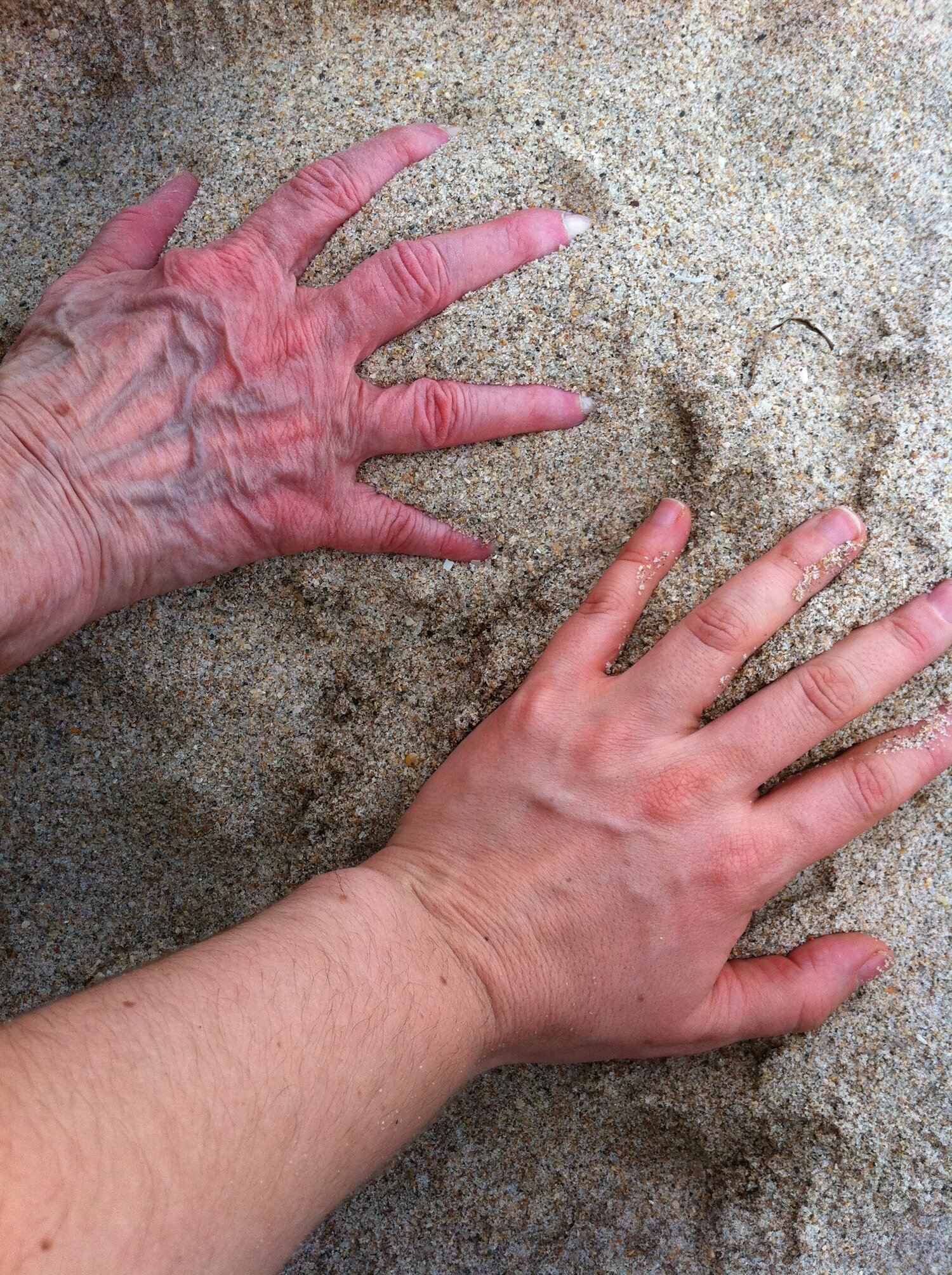To honor Pride, I have created a special coaching offer for LGBT+ leaders to work with me.
Click here to do that, and read my story.
When I was 17, I was into a girl from Idaho. We smoked Camel Lights under staircases, listened to Dylan, and road her green pickup truck up mountain roads to see the stars. We talked about our dysfunctional families and the small thinking of where we came from. I never thought about kissing her. I just knew that I wanted to be near her.
That was a summer in Colorado in 1996.
When I was back home in Cleveland Heights, we wrote letters to each other. I unfurled my life and feelings to Sam. She wrote me her secrets. My mother was suspicious.
In that letter writing season, I woke up in my twin bed to the birds chirping and my mother entering my room. She didn’t knock. With a groggy head, I listened to her rampage. “You are crazy. You think you’re a lesbian? You’re just like your father. I’m going to put you in a mental hospital. That’s where you belong.”
She read my journal. It was green and yellow with a soft cover. I didn’t use the word “lesbian” at that point. I didn’t know who I was. I just knew how I felt about Sam. I called my sister, crying. She was a freshman at college, and I thought that since she lived in New York City, she’d be ok with the gays. I thought that since we both knew of our mother’s histrionics, she’d empathize and support me. When we spoke, she was tepid. She wanted to be in her new home - not where I was. She was away in college when I found out about my dad.
My father isn’t a lesbian like me; but he is gay. I had discovered this a year before meeting Sam. My parents were getting a divorce, and as my mother was sifting through his things without his permission, she discovered correspondences with men that indicated that he was pretty gay. I walked into the house as my mother was sorting through this “evidence” on her office floor, taking photographs of everything in case it would pertain to their divorce.
I remember feeling that this was not my mother’s story to tell, not my mother’s right to do this. While I could understand that she felt betrayed, I also saw felt that she didn’t have the intimacy with herself or my father to navigate the complex and layered emotions swirling around. I walked into my parent’s room and sat on my father’s side of the bed, absorbing everything.
Could this explain the mens’ fashion magazines, him crying over martinis in the basement, the Justify my Love VHS hidden between Cabaret and The Sound of Music? Could it explain how he thew a television against the wall once? Could it explain how he was so brilliant but also singular and isolated?
Unraveling this mystery lead to the big questions that I explore endlessly through my work.
How do adults love themselves, especially the parts they want to hide?
How do we live an honest and authentic life without letting others dictate that for us?
How do we work with the fear that our authenticity will be rejected and we will be separate?
How do we surrender to the internal battle, and integrate all the complexities and paradoxes of who we are?
What worlds do we create in our wholeness, fullness, aliveness, and connection?
I am a curious person. I want to see the deep gleam of light in the darkness so I can love that gleam. I want to unlock locks and rip doors off hinges. I want emotional freedom for us.
As an adult, I know that my father being closeted doesn’t explain all of the pain of my childhood, but it’s a big part of it. The shock of my father being 50 years old and not living fully as himself that entire time implored me to live fully as myself. While I didn’t totally know what that meant then, and I still don’t know what that means, I am committed to the exploration, the not-knowing, the shakiness, the discovery, the dynamic nature of self and the world. This is self-exploration, exploration of truth, exploration of intimacy, exploration of fulfillment, exploration of desire, exploration of beauty, exploration of exploration itself.
I grew up in Cleveland Heights and went to an all-girls school in Shaker Heights. My first girlfriend grew up in Shaker Heights. She was the first woman I loved and who I kissed. Shaker is where Little Fires Everywhere was set. Did you read this book or see the series? In my experience, Shaker Heights was externalized perfection and internalized unexpressed secrets.
My first girlfriend externalized herself beautifully. She painted her Honda Accord! It wasn’t exactly to my taste (all primary colors), but you have to understand, nobody in Shaker Heights did anything so different and badass as my girlfriend. She was unabashedly herself. And I learned from being with her that I could trust my body. Nobody taught me how to express love physically or emotionally. There were no immediate cultural references or representations of people like me that I could emulate. But I knew how to express love with her. That made me feel right in my body. I could trust myself. I had a deeper knowing that transcended external direction.
I came out to my gay father at Hunan on Coventry restaurant, because I had heard you shouldn’t shock your parents about being gay while, say, driving a car. Over pickled cabbage, I told my father that I was a lesbian and had a girlfriend. He told me that he wasn’t surprised, but also that he was sad that he wouldn’t have as many grandchildren as he had hoped. Isn’t that ironic?
Putting that aside, I was both pleased and confused about him not being surprised about me being a lesbian. Maybe I was right! Maybe I was, indeed, a lesbian. How did he sense it? I was and still am feminine, and I look like the girl next door. I WISH I could signal myself as lesbian more so I could feel more connected to my people. I suppose writing this is a pretty big signal to you, my reader.
When my sister graduated from college, my family was still speaking to each other. So we came to New York to celebrate her. Graduation weekend also happened to be my birthday weekend. My father and I decided to walk around the West Village, as a lesbian daughter and gay father would do. We got a drink at the Stonewall Inn. As I sipped on a martini that he bought me, I asked him about the last time he had been there. He said about 20 years ago. That day happened to be my 20th birthday. I listened. I absorbed. I imagined my mother giving birth to me in her green nightgown and heavily made-up Boyd’s face while my father go-go danced at the Stonewall. That’s not actually what happened. But I do know that when secrets abound, we make up our own stories. I also know that having secrets and lack of trust is not intimacy.
Neither is spin-the-bottle with the Oberlin women’s Rugby team, but I did that, too. I loved kissing girls in college. I loved exploring sexuality and sex. I loved the politics of the body, identity politics, and I loved making my mother feel uncomfortable. If my mother had been comfortable with me, that would have meant I was living a mediocre life. Discomfort abounded! I would not hide who I was to perpetuate the family history of shame.
Those were the early days of me coming out, of discovering that I could claim my body’s desires, that I could claim my desires of all things, that I could and would be myself despite the void of support.
I moved to San Francisco after college because that’s where the lesbians were in the late 90s and early 2000s. Poets and musicians and hairdressers and pre-school teachers made up my community. We got each other jobs and hosted potlucks and slept with each other and had picnics in Dolores Park. As the separation with my immediate family continued, I formed close relationships with people who became my family of choice.
I worked for the National Center for Lesbian Rights for nearly five years, too. As a fundraiser, I got to know San Francisco lesbians and lesbians all over the country. I worked for and with lesbians, and I was easily and naturally honored for being who I was – without having to explain or come out over and over again.
Others don’t immediately know that I’m a lesbian, and there’s nothing stereotypically or visibly identifiable about me as a lesbian. For me to be seen as whole, I have to bring myself into the space, and that’s not always comfortable or natural. But there’s no other option for me to feel whole.
This is some of my story of being a lesbian. It is my subjective experience. It informs how I show up in the world. I love being a lesbian. I love my friends, my communities, self-invention, evolution, defining who and what a beautiful and meaningful life is to me, weaving my own love.
Being a lesbian wholeheartedly informs my work as a coach. Your story undoubtedly informs who you are as a _____ and a ________ or a _______. It’s illuminating to see the major moments of our lives and see how that has left an imprint. Your life has meaning on your character and leadership and decisions and choices, too. Here is some meaning I’ve gathered from my story, so far.
Before I identified as a coach, I was a person navigating the world and making sense of it. I still am. Before you were a leader, a visionary, a creative - you were a person, too. You’re still a person. Nobody has this all figured out. Nobody.
I love to understand stories of origin, secrets, and revelations. I am interested in what people express and don’t express, and to whom. Maybe it’s a secret. Or something you don’t love about yourself that you want to hide. Or something that you do love about yourself but that you think someone else won’t understand. Secrets could show up as covering an identity. They protect. Secrets could mean hiding or withholding something you don’t feel you’re that great at. Secrets are soaked in your vulnerability. It is usually what makes a person utterly and beautifully unique.
Love is healing. I want unique people to build relationships with other unique people who are genuine, supportive, interdependent, loving, and transparent – like a family of choice that lots of LGBTQIA+ people have and need. Some might call that networking. I call it love. How can we create symbiotic relationships and systems of support of people who know who each other and what moves you. How do we surrender to rooting for each other, giving each other attention, sharing our thoughts and feelings, and helping when we can?
Lightness and Darkness are there. Wholeness is life force energy, connection to something bigger. Societal and cultural norms flow through the family and can get stuck inside of us. I don’t say that lightly. This is big. It can feel like we will be annihilated if we show up in a way that defies others’ expectations or doesn’t meet their needs. If we examine what makes us feel stuck, we can start to unravel that fear, and show up more whole and wholehearted, more boundaries, and more striking in our differences.
Difference is beautiful. Learning from each other’s different perspectives, experiences, thinking, and feelings is E X P A N S I V E. This is creativity and learning and connection that feels fully alive and dynamic. I love combining different anything and seeing what unexpected brilliance will emerge.
Pleasure is good. I consider myself a pleasure activist. Your body KNOWS! It knows what sadness, despair, joy, anger, and all the other emotions feel like. What gives you vibrancy and energy? What turns your mind and your body on matters a great deal.
Transparency and specificity is fun. Let me be real. In my experience, lesbians know how to communicate what feels good and what doesn’t feel good, and we know that what that is is different for every person. We also go outside the norms in what we consider to be beautiful, what feels like love, and all the many ways we can feel that and share that. We can be very specific. I have had countless frank and non-judgemental conversations with straight friends who feel astonished at how we can speak openly about pleasure and pain and feelings and needs and desires. I don’t even know that I’m doing it most of the time. It’s how I am. It has been suggested to me that I teach straight people about healthy communication through the lens of being a lesbian. Maybe!
Knock: When I meet someone in a vulnerable space of self-discovery and self-expression, I ask for permission to enter. If I don’t have permission, I don’t enter. I allow people to have their own process in their own time. I’m not going to read your diary. You share what you want to share. Trust matters in our relationships, and also impacts how effective we can be at creating change.
There is a link between authenticity and well-being. This is the foundation of my work. I know what hiding and shame and secrecy looks like, and I know the ripple effect of those feelings. I know deeply the journey, feelings, and tools to make it through those feelings and states and into wholeness and well-being.
Mining my subjective experiences roots me in who I am.
In honor of Pride Month, I am offering LGBT+ leaders to mine your story with me to understand your roots, your wisdom, and what matters to you. Work with me to understand yourself more as a leader, understand that you’re like this because of that then own it more, work through a secret, show up more whole, defy expectation, experiment with something new, and learn from the wisdom of this lesbian. Share your story with me, and we will untangle your values, uniqueness, resilience, fears, beauty, and wisdom.
If you are an LGBT+ leader and want to work with me, get it by the end of June 2021. Click here for details and to begin. XO






